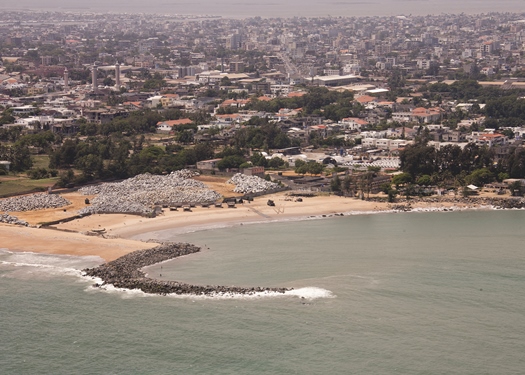
Benin has officially launched the CoHeRe project, a groundbreaking initiative aimed at strengthening the climate resilience of coastal communities while safeguarding their cultural heritage.
The launch event took place on June 25 at the Houdégbé Amphitheatre of the University of Abomey-Calavi, bringing together the international project team, local authorities, and key stakeholders.
CoHeRe—short for “Where the sea meets the land: Benin’s coastal heritage, community resilience and inclusion in a changing environment”—is spearheaded locally by the University of Abomey-Calavi and the NGO Eco-Bénin.
It is funded by UK Aid through the Foreign Commonwealth and Development Office and co-financed by Canada’s International Development Research Centre.
The initiative is part of the broader CLARE (Climate Adaptation and Resilience) programme. In Benin, climate change and natural disasters continue to threaten livelihoods, especially among fishermen, farmers, and artisans, while placing pressure on both tangible and intangible heritage.
CoHeRe seeks to address these challenges by linking local knowledge and scientific research to promote sustainable, community-led responses to environmental risks.
Professor Didier N’Dah from the University of Abomey-Calavi warned that erosion is steadily erasing heritage sites. He stressed the need to combine academic research with grassroots action.
Gauthier Amoussou, National Coordinator of Eco-Bénin, called for stronger integration of heritage into national public policies, particularly in the face of ongoing coastal infrastructure projects.
Preliminary findings shared by Project Coordinator Professor Anne Haour of the University of East Anglia revealed deep community connections to heritage.
“Ninety-seven percent of respondents view heritage as essential to their identity. Ninety-nine percent observed major environmental changes over the last ten years,” she reported.
Durham University’s Professor Joanne Clarke highlighted Benin’s unique position in exploring global links between heritage and climate resilience.
Local leaders, represented by district chief delegate Rosine Chantale Romao, pledged their full support, noting the project’s importance in preserving traditional knowledge systems.
The representative of the UAC Rector, Professor Victorien Dougnon, closed the ceremony by reaffirming the university’s commitment to the project.
He stressed the importance of generating actionable knowledge to meet the country’s pressing environmental needs.
The CoHeRe project will continue over the next two years, with field missions planned in Grand-Popo and Ouidah to engage communities, explain project goals, and collect data.
The partnership between local researchers, community leaders, and international institutions marks a significant step in building climate resilience rooted in heritage conservation.



